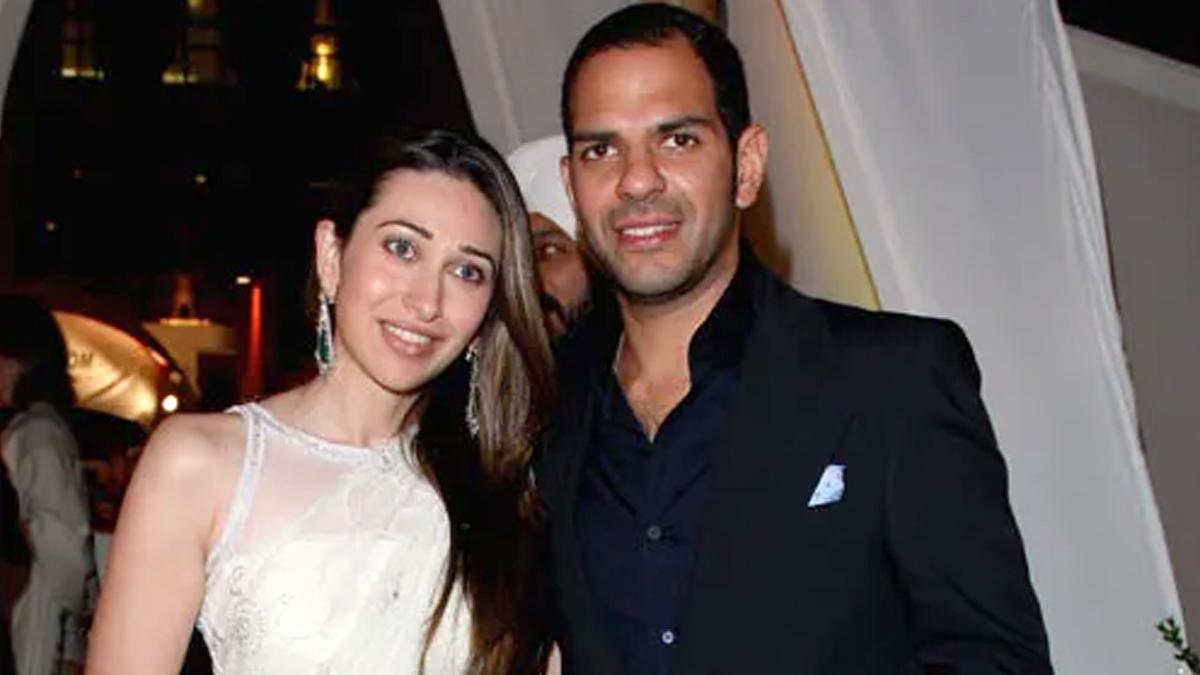Unresolved succession plans and informal ownership structures are fuelling bitter family fights across India’s corporate boardrooms.

IMAGE: Karisma Kapoor with Sunjay Kapoor. Photograph: Rediff Archives.
A growing wave of wealth clashes and a persistent reluctance to formalise succession plans is turning India’s corporate boardrooms into a battleground of family feuds.
The latest flashpoint is the death of 53-year old Sunjay Kapur, chairman of auto parts maker Sona BLW Precision Forgings, which has triggered a family dispute.
His mother Rani Kapur has opposed the appointment of Sunjay’s wife Priya Sachdev Kapur to the firm’s board.
“There’s often a mismatch between the mindset of ageing patriarchs and the aspirations of the next generation,” says Ketan Dalal, founder of tax advisory firm, Catalyst Advisors.
“Add in unequal levels of contribution and commitments among family members, lack of shareholder agreements, and weak governance — and you have a recipe for prolonged conflict,” he adds.
The Kapurs join a long list of prominent Indian business families entangled in litigation over control, including the Kirloskars, the Baba Kalyani family, and the Chhabrias of Finolex.
In September last year, Bina Modi — chairperson of Godfrey Phillips India — was involved in a feud with her sons, Samir and Lalit, as she resisted sale of the company.
Her sons accused their mother of defying their late father’s will.
Last month, the feuding Maran brothers announced a truce, which was mediated by Tamil Nadu Chief Minister M K Stalin, The Hindu reported on July 8th.
In the past, acrimonious family feuds have hit almost all conglomerates including the first family of India Inc, the Ambani brothers, and the older ones like the Birlas and the Bajajs.
Billionaire Lodha brothers announced a settlement in May after fighting over the ‘Lodha’ brand for months.

IMAGE: Mukesh Ambani and Anil Ambani. Photograph: Adnan Abidi/Reuters
Experts attribute the growing discord to opaque ownership structures, informal arrangements, ageing and weakening patriarchs, and delayed planning.
“Most Indian families that have expanded in size and business complexity have not invested in formal ownership or succession frameworks,” said Dalal.
“When circumstances change and there’s no framework in place, disputes are inevitable.”
Many legacy businesses still remain mired in cross-holdings, Hindu Undivided Family (HUF) structures, and unclear promoter arrangements.
The cultural aversion to a formal structure compounds the problem.
The role of advisors is another under-discussed factor.
“Families are often reluctant to bring in objective advisors or are wary of those introduced by other members,” Dalal says.
“The suspicion delays engagement and issues remain unresolved.”

IMAGE: Lalit Modi and his mother Bina Modi have been at loggerheads since Modi Senior’s death in November 2019. Photograph: Kind courtesy Lalit Modi/X
According to Dalal, underlying all of this is the “illusion of immortality” — a belief that difficult decisions on succession or ownership can always be deferred.
“But too often, ‘later’ becomes too late.”
“Irrespective of the age, every family/person must have a clear succession plan in place so that their descendants don’t get involved in a bitter public fracas as it ultimately leads to shareholders wealth destruction,” said a CEO, asking not to be quoted.
As India Inc continues to create wealth at scale, the absence of a clear succession road map threatens to fracture legacy businesses — unless families embrace governance and structure as seriously as growth, say experts.
Feature Presentation: Aslam Hunani/Rediff



